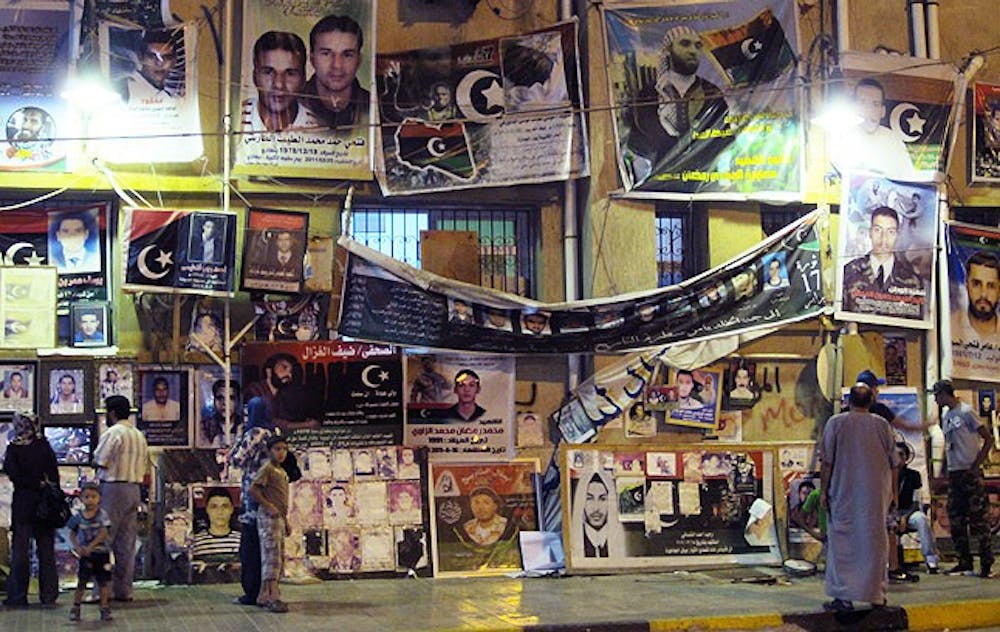Editor’s note: Andrew Reynolds, UNC’s chairman of global studies, is in Libya advising the Transitional National Council on its plans for an interim government. The following is a first-person dispatch written Friday from Benghazi, Libya. This is Reynolds’ first update. Read the second here.
We once thought of Libya as a closed and hostile place, a state, and indeed people. We distrusted them as opponents of our way of life and allies of some of our worst enemies. But after the uprising against the 42-year dictatorship of Col. Moammar Gadhafi, a very different reality has been revealed. Libyans yearn just as strongly as us to choose their leaders, hold them accountable and live under the rule of law. To travel, engage. They see Westerners as their great friends, indeed saviors, after the NATO used its military might to support their uprising and protect civilians who were under attack from Gadhafi’s army.
While Libya is full of great optimism, it remains fragile. As I write in the rebel stronghold of Benghazi, Gaddafi and his sons remain on the run, perhaps hiding in on one the few remaining cities held by the regime. The transitional (rebel) government has made great strides quickly and its instincts on a transition to democracy are good but there are huge challenges ahead. Libya has never had anything like a democratic regime, free elections or a
political party system. Now it must evolve all these institutions in little time. The challenge will be to include all voices, guard against the country fragmenting into tribal allegiances, and try and retrieve the large and small guns which seem to be in everyone’s hands.
I am in Benghazi until Monday and then travel to Tripoli (the recently captured national capital) staying until Wednesday to advise the Transitional National Council (TNC) of Libya on their plans for an interim government, constitutional assembly elections and the political design process they are embarking upon. I am working as an expert consultant on these issues for the non-partisan National Democratic Institute which receives funding from the US government. I will also spend some time in Cairo on this trip following up on the work in did in Egypt in June. I arrived on Thursday taking a United Nations flight from Cairo which had to stop to take on fuel in the northern Egyptian desert. The 50-seat propeller plane only had a dozen passengers: diplomats, journalists and aid workers. This remains a place visited by few outsiders … for now at least. As you enter Libyan airspace the terrain slowly morphs from yellow to orange and then a blur of brown and green. Northern Libya is more fertile than Egypt, another sign of its propitious future.
Benghazi is the heart of the revolution that toppled Moammar Gadhafi, and they do not let you forget it. At night, Freedom Square is alive and buzzing. Circling a long line of international flags are oversized montages of martyrs who died in the revolution; posters shouting out thanks to Nicolas Sarkozy, Susan Rice, David Cameron and President Barack Obama and stalls selling new flags and revolutionary trinkets.
We walk to the square with our translators/drivers. Everyone in a translator I’ll call Ali’s family speaks English. His grandfather was a driver for the British in Tobruk during the war, and his father is a professor of linguistics at the local university. Learning English was the family’s quiet protest against Gadhafi. On April 17, he, along with thousands of other Benghazis, went to Gadhafi’s barracks in the center of town where hundreds of Libyan army mercenaries were holed up. In the battle that followed, 400 Benghazis were killed and Ali was left with three bullet wounds in his right thigh.
All day today we meet at Gadhafi’s high tech security headquarters in Benghazi that has become reborn as the headquarters of the “rebel” Transitional National Council. I have long discussions about the democratization timetable with members of the political and legal affairs committees.
At lunchtime I chat with another of our drivers and fixers who I’ll call Muhammed. He is unrelentingly optimistic. “We want to become better than Malaysia, better than Qatar. Look at our country.” His hands sweep across the seafront. “We can provide.”
Muhammed has two brothers fighting with the rebels — one is a teacher, the other an engineer. But this evening the reality and fragility of Libya comes home. Muhammed hears that his best friend from high school was killed on the front lines near Bani Walid.



